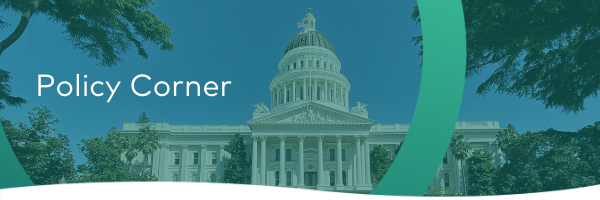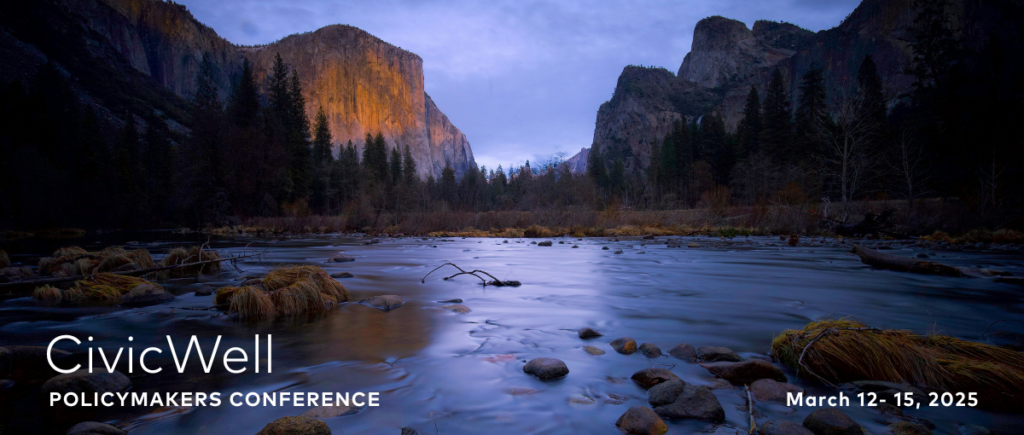September 28, 2025
Topic
Regional Resilience
By: Bernadette Austin
This was a significant month for changes in policy and legislation. The state legislative session adjourned after going into overtime, and the federal budget deadline passed without resolution. As we spend the coming days grappling with the consequences of federal budget negotiations and understanding the impacts of new state legislation, now is the time to refocus on collaboration at the local level to leverage shared assets and overcome common challenges across regions.
Over the last couple of weeks, I had the pleasure of participating in regional convenings filled with hope and commitment. In mid-September, I joined a discussion with agencies from across Southern California to explore regional collaboration to advance funding for climate resilience. Participants noted that even if they can secure federal and state funding for new and ongoing efforts, these local entities must explore their own ways to support their climate change resilience goals. While there may be committed state or federal funding for infrastructure projects, locals will be responsible for the long-term operations, maintenance, management, and programming. Moreover, the uncertainty of federal funding–even from committed funds–can present challenges in securing contractors to perform this work. Yesterday, I participated in a regional convening of leaders and community members in the Sacramento region dedicated to advancing equity, sustainability, and prosperity. The conversations at these regional convenings mirror what I have observed across the state–we must find ways to work regionally towards our shared goals.
Rural communities provide great examples of this. With leadership through organizations like the Sierra Business Council and the California Coalition for Rural Housing, cross-sector partners can leverage their respective strengths to address challenges unique to their communities. One great example of this is the Wildfire Solutions Council, a powerful coalition that has had notable success in its goal to secure the resources necessary—across local, state, and federal levels—to achieve California’s wildfire resilience goals and protect the health of our landscapes and communities. CCRH is a trusted voice featured in the first session of the CivicWell Fall Webinar Series, where they provided valuable insights on how to rebuild affordable, sustainable housing after a disaster. You can also hear their insights, as well as innovative funding programs like California Energy Design Assistance and California Energy-Smart Homes, here.
In the coming months, CivicWell will partner on reports, presentations, and convenings to share what we have heard from regions across the state regarding their highest priorities and recommendations for actions to take. Subscribe to our e-newsletters and follow us on social media to stay informed of these events and resources.

End of Session Update: Climate, Energy, and Housing Take Center Stages
Provided by Our Friends at Lighthouse Public Affairs
The Legislature adjourned September 13 after an intensive final week that reshaped state climate and energy policy while also advancing high-profile housing reforms. Lawmakers suspended procedural rules to move last-minute deals, leaving Governor Newsom with hundreds of bills to sign or veto by the mid-October deadline.
For climate and energy advocates, the close of session delivered significant outcomes:
Cap-and-Invest Reauthorization
Legislators extended California’s cap-and-trade system, rebranded as “Cap and Invest,” for 15 years through a 2-bill package, AB 1207 (Irwin) and SB 840 (Limon). The deal promises to reduce emissions, stabilize gasoline supply, provide direct savings through an expanded Climate Credit on utility bills, and create a new climate innovation fund for new technologies. The Governor signed the reauthorization package on September 19th.
Greenhouse Gas Reduction Fund (GGRF)
The spending plan in SB 840 (Limon) protects major GGRF allocations, ensuring billions continue flowing to clean energy, housing, transit, and climate resilience. It was also signed by the Governor on September 19th.
Western Regionalization
A new framework created through AB 825 (Petrie-Norris) allows California to deepen participation in a West-wide power market, helping lower electricity costs and improve reliability by sharing clean energy across state lines. The Governor signed this bill on September 19th.
Wildfire Fund Expansion
SB 254 (Becker) strengthens wildfire oversight and expands the utility Wildfire Fund’s use, making grid investments more affordable and improving safety standards. The Governor signed SB 254 on September 19th.
Housing Reform
A sweeping package aims to cut red tape and accelerate approvals. Key bills include SB 79 (upzoning near transit), AB 648 (streamlining student and staff housing), and AB 893 (campus development zones). Together, they signal a bipartisan push to increase supply. The Governor has not signed these bills yet.
Delta Tunnel Halted
The long-debated Delta Conveyance Project was shelved again in negotiations, reflecting persistent environmental and regional opposition.
Taken together, the session underscores California’s effort to balance affordability, climate ambition, and community concerns. The end of session also sets the stage for continued debate when lawmakers return in January.

Don’t forget to Join Us for the Rest of
CivicWell’s 2025 Fall Webinar Series!
Make sure you mark your calendars, we still have 4 webinars left in the series! The remaining webinar topics are:


Save the Date for CivicWell’s March 12-15, 2026 Policymaker’s Conference
California Resilient: Local Leadership in Times of Transition
At the conference, attendees will learn about ideas and resources for local leaders guiding their communities through times of transition. The political landscape for environmental sustainability, energy efficiency, innovation, and climate change is in a period of significant transition. In the last year, national policies and federal funding for these topics have changed dramatically, and in the coming year, California will face significant leadership changes with a new Governor and agency heads.
The program will offer pragmatic examples to spark innovative yet achievable solutions in the face of daunting challenges and will be structured to lay the groundwork for collaborations across sectors, between jurisdictions, throughout regions, and around the state to continue beyond the conference.
This conference sells out every year, so mark your calendar to register in early November!





